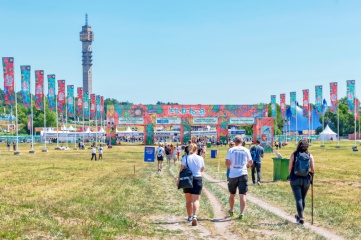A major event brings together players from many industries. It is a temporary city, a microcosm of society, that requires power, transport, infrastructure, lighting, project management and so on – many of which are provided by private companies on short term contracts. Coordinating this is inevitably more complex than for a permanent economy with an established supply chain for its services.
Considering the sheer amount of products, services and equipment required to stage a major event like an Olympic Games or a major festival, you would think that it would be easy for any number of suppliers to get involved.
Sadly though, not everyone knows how to access these major event procurement opportunities.
What are the barriers to getting involved in major event projects?
Firstly, when it comes to a mega event like the Olympic Games, they generally involve a large proportion of public funding. This means organisers are under great pressure from the public, amplified by the press, to demonstrate how funds are being distributed.
This can result in protectionism, incentivising domestic companies and making the procurement process less attractive to overseas providers. Or some processes can result in projects being contracted to the lowest bidder rather than the best solution provider.
In other cases, there can be a lack of transparency. Half of the stadiums used for the FIFA 2014 World Cup have come under scrutiny for alleged irregularities and bribery, with officials having been accused of accepting bribes in exchange for contracts.
Other barriers to contract opportunities come from within. A company may simply not have enough contacts or experience in the major events sectors, or the confidence to gain those contacts. While there is not a lot a private company can do about how procurement processes are run, there is a lot that can be done to raise your profile and gain confidence.
Top tips for smaller suppliers
1. Promote your activities through the media. Talk about your event successes at every opportunity – be active and build up a following on social media, engage in conversations, become known in your field.
2. Get involved in events of all sizes. It’s not all about the Olympic Games. Annual festivals and smaller local events provide constant earning opportunities and are easier to establish long-term relationships with.
3. Get Networking. Come to the best events in the sector where you get face to face with buyers. Events like Host City and the Event Production Show are all about the business of hosting major events.
4. Join an association. These can offer great advice and support from other members and confer quality status on their members. For example, Host City 2019’s Strategic Partners are the leading international associations in the event hosting supply chain.
5. Always believe in your soul. You are gold!


